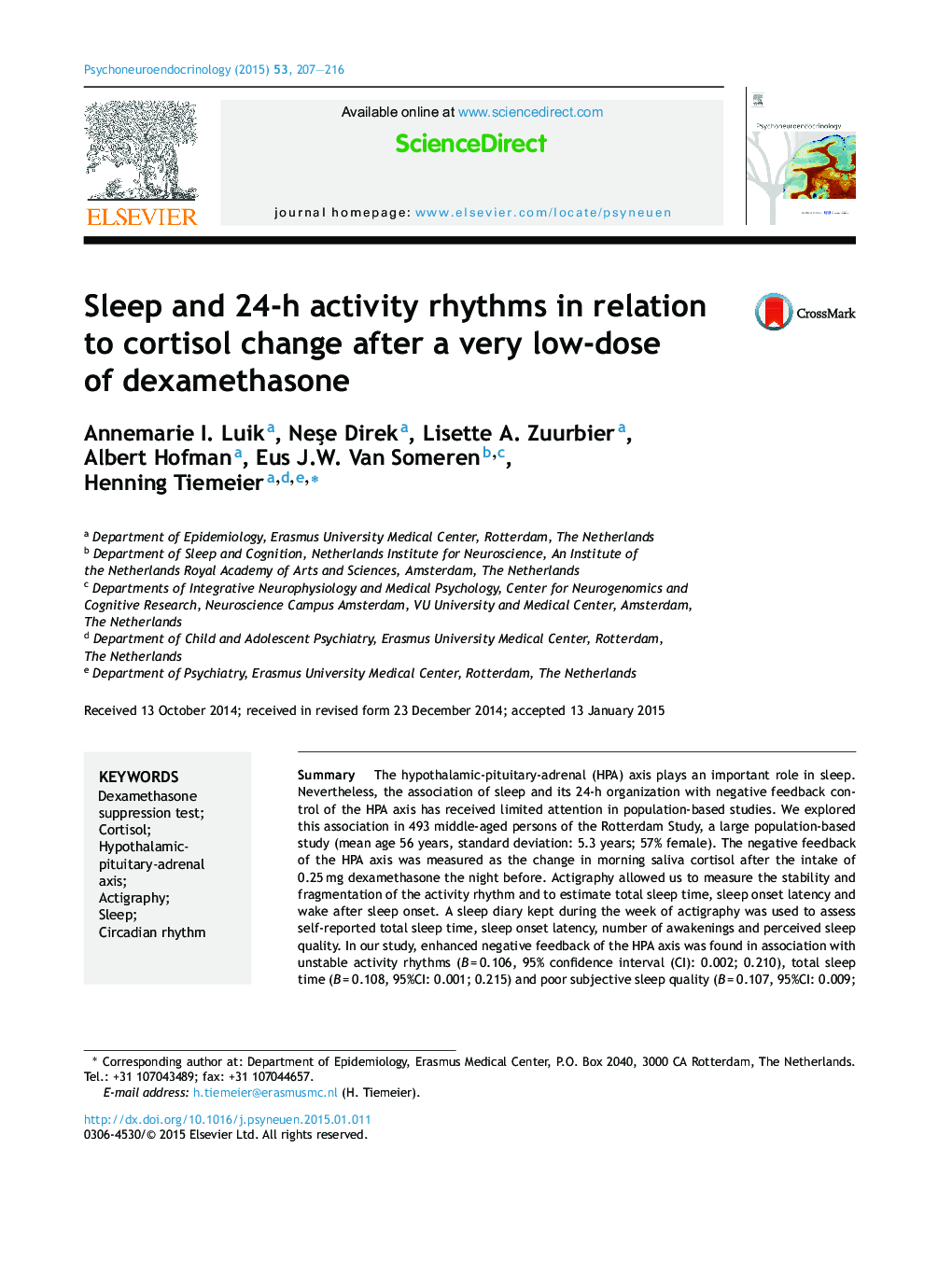| Article ID | Journal | Published Year | Pages | File Type |
|---|---|---|---|---|
| 6819140 | Psychoneuroendocrinology | 2015 | 10 Pages |
Abstract
The hypothalamic-pituitary-adrenal (HPA) axis plays an important role in sleep. Nevertheless, the association of sleep and its 24-h organization with negative feedback control of the HPA axis has received limited attention in population-based studies. We explored this association in 493 middle-aged persons of the Rotterdam Study, a large population-based study (mean age 56 years, standard deviation: 5.3 years; 57% female). The negative feedback of the HPA axis was measured as the change in morning saliva cortisol after the intake of 0.25Â mg dexamethasone the night before. Actigraphy allowed us to measure the stability and fragmentation of the activity rhythm and to estimate total sleep time, sleep onset latency and wake after sleep onset. A sleep diary kept during the week of actigraphy was used to assess self-reported total sleep time, sleep onset latency, number of awakenings and perceived sleep quality. In our study, enhanced negative feedback of the HPA axis was found in association with unstable activity rhythms (BÂ =Â 0.106, 95% confidence interval (CI): 0.002; 0.210), total sleep time (BÂ =Â 0.108, 95%CI: 0.001; 0.215) and poor subjective sleep quality (BÂ =Â 0.107, 95%CI: 0.009; 0.206) after multivariate adjustment. These results indicated that the 24-h organization, duration and experience of sleep are all associated with the negative feedback control of the HPA axis.
Keywords
Related Topics
Life Sciences
Biochemistry, Genetics and Molecular Biology
Endocrinology
Authors
Annemarie I. Luik, NeÅe Direk, Lisette A. Zuurbier, Albert Hofman, Eus J.W. Van Someren, Henning Tiemeier,
